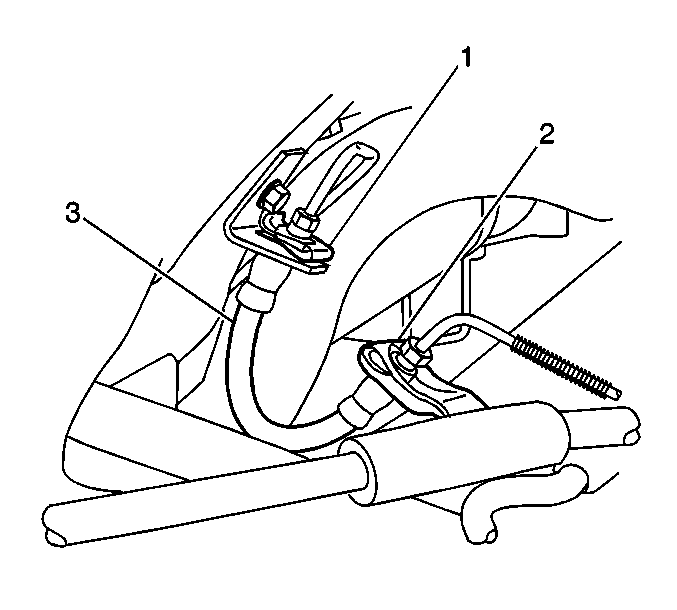For 1990-2009 cars only
Caution: Refer to Brake Fluid Irritant Caution in the Preface section.
Notice: Refer to Brake Fluid Effects on Paint and Electrical Components Notice in the Preface section.
Removal Procedure
- Raise and support the vehicle. Refer to Lifting and Jacking the Vehicle in General Information.
- Remove the tire and wheel assembly. Refer to Tire and Wheel Removal and Installation in Tires and Wheels.
- Clean all dirt and foreign material from the brake hose ends and brake pipe fittings.
- Using a backup wrench on the hose fitting, disconnect the brake pipe fittings from the brake hose. Cap or plug the brake pipe fitting ends and the brake hose ends to prevent fluid loss and contamination.
- Remove the brake hose retaining clips (1) and (2) from the hose mounting brackets.
- Remove the hose (3) from the hose mounting brackets.

Installation Procedure
- Install the brake hose (3) to the brake hose mounting brackets.
- Install the hose retaining clips (1) and (2) onto the hose fittings at the hose brackets.
- Using a backup wrench on the hose fitting, connect the brake pipe fittings at the rear brake hose.
- Install the tire and wheel assembly. Refer to Tire and Wheel Removal and Installation in Tires and Wheels.
- Ensure that the hose does not make contact with any part of the suspension. If the hose makes contact, remove the hose and correct the condition.
- Bleed the hydraulic brake system. Refer to Hydraulic Brake System Bleeding .
- Lower the vehicle.

Align the hose fitting with the notch in the bracket. Use the hose paint stripe as a visual aid.
Notice: Refer to Fastener Notice in the Preface section.
Tighten
Tighten the fittings to 23 N·m (17 lb ft).
